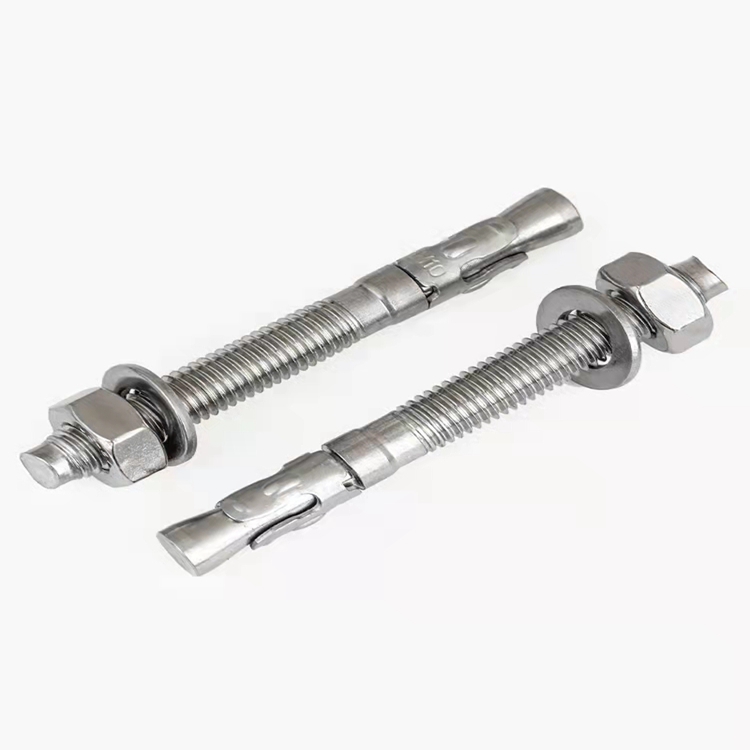Exporting Safety Washers for Enhanced Protection and Reliability in Various Applications
Dec . 04, 2024 05:07 Back to list
Exporting Safety Washers for Enhanced Protection and Reliability in Various Applications
The Growing Market for Safety Washers An Exporter's Perspective
In today's global economy, safety standards are paramount, driving many industries to seek reliable solutions that not only meet regulations but also enhance operational efficiencies. One such solution is the safety washer, an essential component in various mechanical assemblies. As an exporter of safety washers, it is crucial to understand the evolving market landscape, the importance of quality standards, and the dynamic needs of customers worldwide.
Understanding Safety Washers
Safety washers, often referred to as locking washers or lock washers, are designed to prevent the loosening of bolts and nuts in machinery and structural applications. They are used in an array of industries, including automotive, aerospace, construction, and manufacturing. These washers are engineered to withstand a range of conditions, including vibrations, extreme temperatures, and corrosive environments, making them indispensable in ensuring the reliability and safety of mechanical systems.
Export Market Trends
With the rise of industrialization in emerging markets, the demand for safety washers has surged. Countries in Asia, Africa, and Latin America are ramping up production and infrastructure projects, leading to an increased need for high-quality fastening solutions. For exporters, this presents a significant opportunity. Understanding the regional standards and regulations is critical for success. Different countries have varying requirements for safety components, necessitating an adaptable approach to production and quality assurance.
Moreover, the global movement towards sustainability is influencing purchasing decisions. Customers are increasingly looking for products that adhere to environmentally friendly practices. Exporters who can provide safety washers made from sustainable materials or with minimal environmental impact will find themselves ahead of the curve in competing for contracts.
Quality Standards and Compliance
safety washers exporter

Quality is non-negotiable in the production and exportation of safety washers. High-profile failures due to the use of substandard components can lead to catastrophic outcomes. Thus, international standards such as ISO 9001 (Quality Management Systems) and ISO 14001 (Environmental Management Systems) are essential benchmarks for exporters. Obtaining certifications not only reinforces a company's commitment to quality but also increases credibility in the eyes of potential clients.
Furthermore, understanding and complying with the specific standards of the target country can significantly enhance market entry. For instance, safety regulations in Europe may differ from those in North America or Asia, which necessitates a comprehensive understanding of the respective requirements. This knowledge enables exporters to tailor their products to meet local needs effectively.
Building Strong Customer Relationships
In the competitive landscape of safety washer exportation, establishing strong relationships with customers is crucial. Regular communication and after-sales support can differentiate a business from its competitors. Gathering feedback from clients not only helps in improving product offerings but also fosters loyalty. Additionally, being transparent about lead times, production capabilities, and the sourcing of materials can build trust, which is essential for long-term partnerships.
Digitalization has also transformed how exporters interact with customers. Leveraging e-commerce platforms and digital marketing can expand reach and enhance visibility in international markets. Providing detailed product descriptions, technical specifications, and even installation manuals online can help potential customers make informed decisions, ultimately driving sales.
Conclusion
The market for safety washers presents numerous opportunities for exporters willing to navigate the complexities of international trade. By focusing on quality, adhering to compliance standards, fostering customer relationships, and embracing digitalization, businesses can successfully position themselves as leaders in this vital sector. As global industries continue to prioritize safety and operational efficiency, the demand for reliable safety washers will remain strong, making this an opportune time for exporters to expand their foothold in the market.
Latest news
-
High-Quality Panel Stud Bolt Reliable Panel Stud Bolt Factory & Suppliers
NewsJul.08,2025
-
High-Precision Fine Thread Locknuts Manufacturer & Supplier Custom Solutions
NewsJul.08,2025
-
PH Imperial Stud Bolt – High Strength Fasteners from Leading Supplier & Factory
NewsJul.07,2025
-
High-Quality Allen Wrench Bolts Leading Factory, Company & Suppliers
NewsJul.07,2025
-
Wholesale Ball Stud Bolt - High Quality Supplier & Factory Price Reliable Wholesale Ball Stud Bolt Company
NewsJul.06,2025
-
High-Strength Alloy Bolts Manufacturer & Supplier Quality Alloy Fasteners Factory
NewsJul.06,2025
